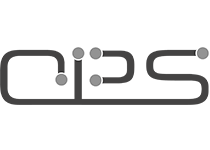
E-Mail: faisal.mahmood(at)uni-siegen.de
Raum: US-D 116 (Ludwig-Wittgenstein-Haus, Campus Unteres Schloss)
Telefon: +49 (0) 271 / 740 2013
Sprechstunde: Nach Vereinbarung
Faisal Mahmood has an educational and practical background in software development, web development, data intelligence, and natural language processing. He completed his Bachelor in Computer Sciences (B.Sc. 2017) at COMSATS University in Pakistan. His one-year bachelor’s project was based on developing web-portal for cyber security teams for analysis and team management. He then began his master’s degree in computer science (M.Sc.) at the University of Paderborn in 2017. During his master’s degree, he joined the KontiKat research group at the University of Siegen as a student assistant (WHK) and worked for two years on research and development of web applications for business continuity management (BCM) and business impact analysis (BIA). Faisal also wrote his master’s thesis at the University of Siegen on the topic: “Chatbot as a tool for providing learning aid: an exploration of learning in business organizations”. He started working as a research assistant at the Chair of Cyber-Physical Systems at the University of Siegen since January 2022.
Publikationen
2023
-
Weber, P., Mahmood, F., Ahmadi, M., Von Jan, V., Ludwig, T. & Wieching, R. (2023)Fridolin: participatory design and evaluation of a nutrition chatbot for older adults
IN i-com, Vol. 22, Pages: 33–51 doi:10.1515/icom-2022-0042
[BibTeX] [Abstract] [Download PDF]Abstract In recent years, emerging approaches to chatbot-guided food coaching and dietary management, while innovative and promising in nature, have often lacked long-term studies. Therefore, with this work, we pursued a participatory approach within a design case study to the co-design and development of a nutrition chatbot for elderly people. Overall, 15 participants were directly involved in the study, of which 12 participated in the initial co-design phase, seven in the first real-world evaluation study over four weeks, and three in the second evaluation study over seven weeks. We contribute to the fields of Human-Computer Interaction by showing how the long-term use of such a chatbot in the area of nutrition looks like, which design implications arise for the development of nutrition chatbots, and how a participatory design approach can be realized to design, evaluate and develop nutrition chatbots.
@article{weber_fridolin_2023, title = {Fridolin: participatory design and evaluation of a nutrition chatbot for older adults}, volume = {22}, copyright = {http://creativecommons.org/licenses/by/4.0}, issn = {2196-6826}, shorttitle = {Fridolin}, url = {https://www.degruyter.com/document/doi/10.1515/icom-2022-0042/html}, doi = {10.1515/icom-2022-0042}, abstract = {Abstract In recent years, emerging approaches to chatbot-guided food coaching and dietary management, while innovative and promising in nature, have often lacked long-term studies. Therefore, with this work, we pursued a participatory approach within a design case study to the co-design and development of a nutrition chatbot for elderly people. Overall, 15 participants were directly involved in the study, of which 12 participated in the initial co-design phase, seven in the first real-world evaluation study over four weeks, and three in the second evaluation study over seven weeks. We contribute to the fields of Human-Computer Interaction by showing how the long-term use of such a chatbot in the area of nutrition looks like, which design implications arise for the development of nutrition chatbots, and how a participatory design approach can be realized to design, evaluate and develop nutrition chatbots.}, language = {en}, number = {1}, urldate = {2024-06-12}, journal = {i-com}, author = {Weber, Philip and Mahmood, Faisal and Ahmadi, Michael and Von Jan, Vanessa and Ludwig, Thomas and Wieching, Rainer}, month = apr, year = {2023}, pages = {33--51}, }



